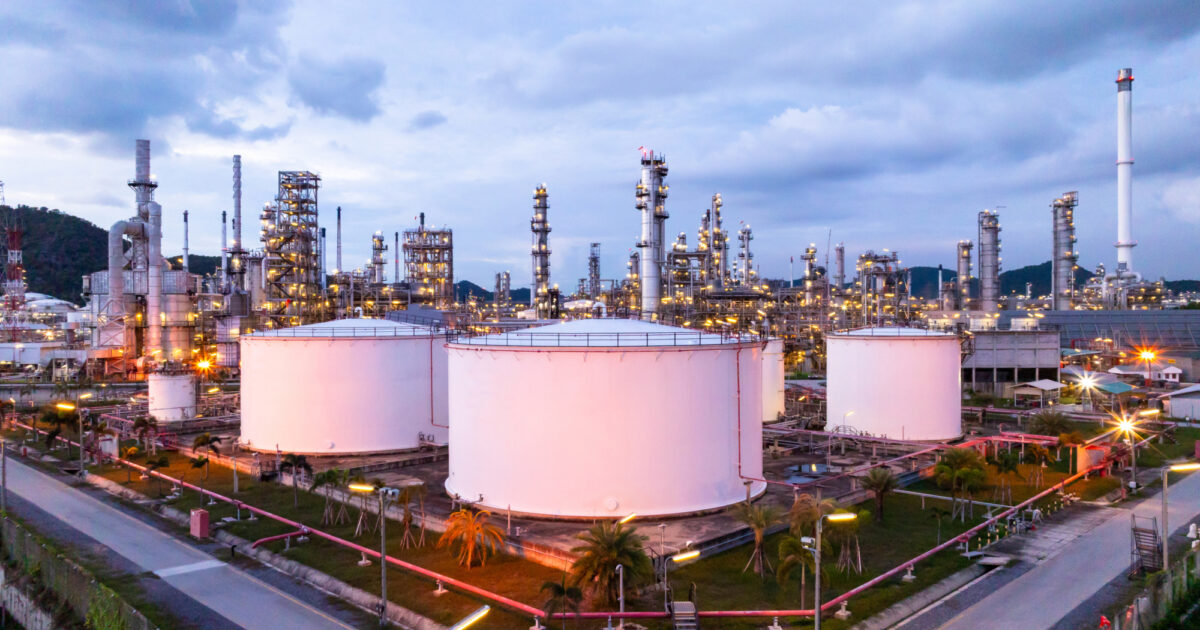Fossil fuel companies made over €180bn in profits in the EU in the two years following Russia’s invasion of Ukraine, analysis on behalf of T&E shows [1]. T&E calls for excess profits to be taxed and for that money to be used to reduce low-income households’ exposure to fuel and energy price fluctuations.
During periods of international tension or shocks, the price of fossil fuels rises rapidly, despite relatively stable production costs. As a consequence, the profits of oil and gas companies can rise significantly. The analysis reveals that EU oil and gas companies generated over €104 billion in profits in 2022, a 45% increase from the previous year. They then fell by 21% in 2023, but remained significant at over €82 billion.
In response to higher global energy prices, governments sought to mitigate the impact on residential and industrial consumers through various measures, including tax reductions and exemptions for consumers. While this did soften prices for consumers, it also kept demand for oil and gas high, which then filled the pockets of fossil fuel companies.
The EU faces a clear policy choice: either phase out fossil fuel subsidies or impose sustained taxes on excessive profit, says T&E. The current approach of maintaining in excess of €100 billion in annual fossil fuel subsidies, while allowing the temporary windfall tax to expire, leaves consumers bearing the double burden of subsidy costs and inflated energy prices.
Antony Froggatt, senior director at T&E, said: “Oil and gas companies have made fat profits in recent years due to circumstances completely out of their hands. Government measures that keep fossil fuel demand high, like fuel duty cuts in times of high prices, simply end up shifting wealth from the public purse to private oil and gas companies. This isn’t fair. The EU must tax oil companies’ excess profits for a fairer deal for European citizens, or end subsidies that are hurting taxpayers.”
In 2005, the EU Emissions Trading System (ETS) introduced a market price for CO2 emissions from the power sector, parts of the transport sector and the industrial sector. This has driven innovation and behavioural change, reducing greenhouse gas emissions and raising over €230 billion. In 2024 alone, nearly €39 billion was raised.
From 2027, the EU will also price emissions from buildings and road transport, more directly impacting householders with gas, coal, or oil heating and the drivers of petrol and diesel cars. Oil, gas and energy companies are expected to pass these costs on to consumers. T&E has estimated that the ETS2 could raise nearly €50 billion a year [2]. T&E calls for these funds to be used to make green alternatives like social leasing schemes and public transport more accessible and affordable, while a significant chunk should also be returned to citizens in the form of a climate dividend. Taxing excess profits would also give the governments more money to help people with the transition, says T&E.
“Governments should tax fossil fuel projects and use that to help citizens switch to greener alternatives. It’s likely oil, gas and energy companies will simply pass on the costs of the ETS2 to consumers. Taxing excess profits would ensure that money comes back to citizens to fund things like €150 a month EV schemes and better public transport,” concludes Antony Froggatt.
Note to editors:
[1] An independent study of net profits in the fossil fuel value chain was commissioned by T&E, carried out by PwC Belgium. Net profits in the EU were extrapolated by the consultant PWC from a sample of 114 fossil fuel companies. Estimates were primarily derived from publicly available company financial statements, corporate websites, and intelligence sources such as Factiva and Forbes, or, where necessary, estimated using a combination of traded volumes and market prices. Due to variations in company reporting practices, activity segmentation, and data availability, these figures provide an approximation rather than a precise measurement of profits. As the methodology relies on assumptions and extrapolation, the aggregated results should be considered as an indicative as opposed to precise assessment of the total profits generated across EU fossil fuel value chains.
[2] On average between 2027 and 2032, assuming an average carbon price of €55/tCO2








